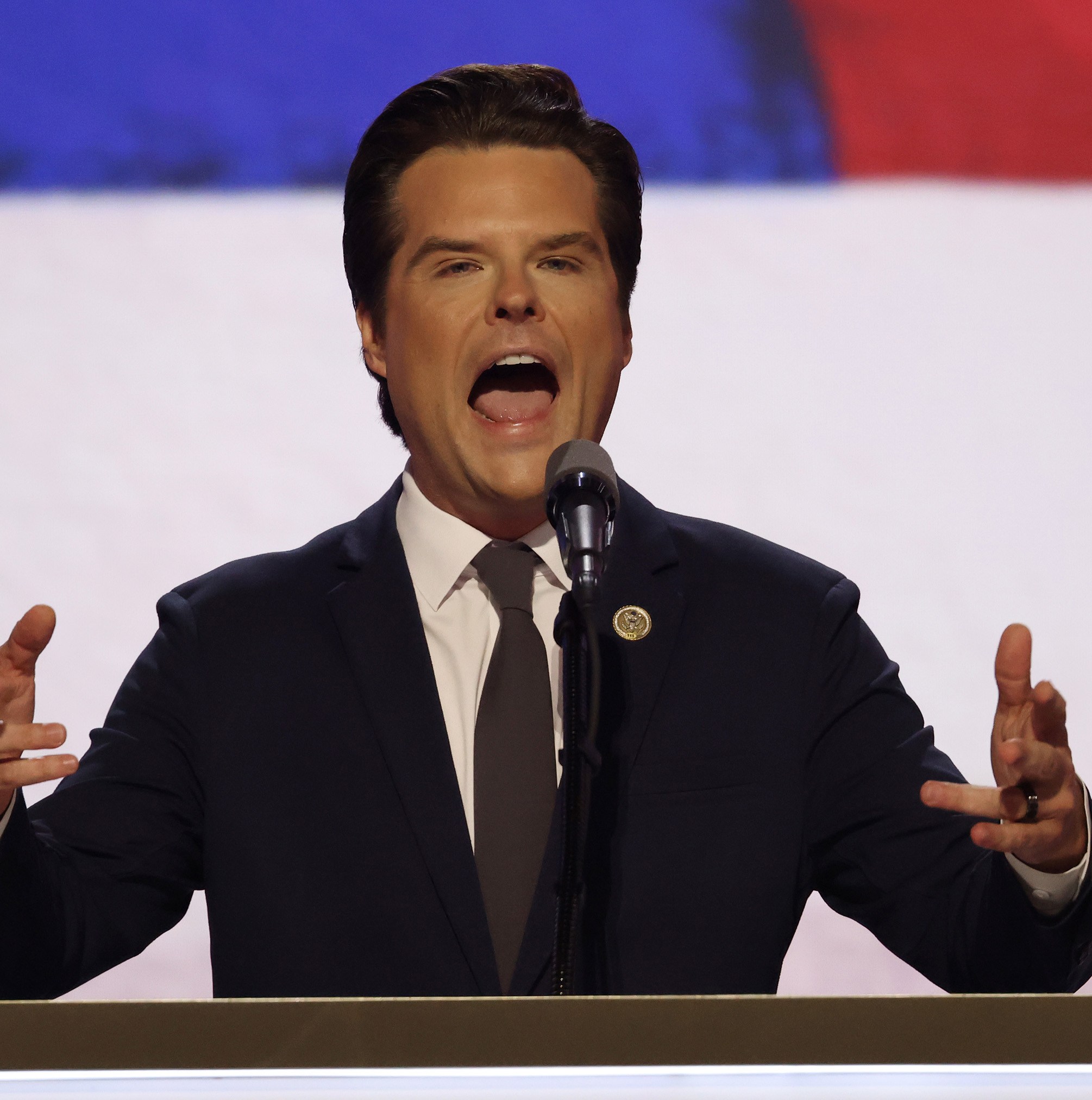Support independent journalism that matters — become a Vox Member today.
What the hell is going on in Congress, explained
Trump stoked another congressional crisis. But there’s an intriguing twist to this one.


Editor’s note, December 21, 10:20 am ET: Shortly after midnight on Saturday, the Senate passed legislation that would fund the government and avert a shutdown. The bill did not include the suspension or elimination of the debt ceiling that Donald Trump had demanded.
President-elect Donald Trump didn’t even wait to start his second term before throwing Congress into chaos, sinking a bipartisan spending deal and making his own demands as a government shutdown looms at midnight.
In one sense, this is just the latest installment of a very familiar story involving House Republican dysfunction over spending battles, and Trump’s willingness to embrace chaos and throw things into disarray.
The surprising aspect to the current showdown, though, is just what, exactly, Trump has chosen to pick this fight over: He wants to suspend, or even eliminate, the debt ceiling.
“Congress must get rid of, or extend out to, perhaps, 2029, the ridiculous Debt Ceiling,” Trump posted on his social media platform Truth Social early Friday morning. “Without this, we should never make a deal.”
The debt ceiling is the limit — set in law — of how much new debt the US government can issue. If it is not raised or suspended in time, the country would default on its debt; it is widely believed economic turmoil would then ensue. Republicans have used the threat of a debt default to try to force Democratic presidents into policy concessions, and Trump fears Democrats will try something similar against him in 2025. So he wants the debt ceiling suspended right now — or even abolished entirely.
This was an unexpected turn of events because the initial bipartisan deal just didn’t address the debt ceiling at all: It merely funded the government for three more months, as well as included several other provisions that had won bipartisan backing.
When, on Wednesday, billionaire Elon Musk started publicly attacking the deal, he complained about the bill’s “overspending” and also made sometimes-inaccurate claims about those add-on provisions. But he said nothing about the debt ceiling — which would, if suspended, allow Trump and Republicans to spend more freely.
Then, in a Wednesday afternoon statement denouncing the deal, Trump suddenly put the debt ceiling on the agenda. “Increasing the debt ceiling is not great but we’d rather do it on Biden’s watch,” he posted on Truth Social, calling Republicans “foolish and inept” for not dealing with this issue earlier and complaining that “the Debt Ceiling guillotine was coming up in June.”
On Thursday, House Speaker Mike Johnson scrapped the bipartisan deal, dropping several of the add-on provisions and, in accordance with Trump’s wishes, adding a debt ceiling increase. Some conservatives who had cheered on Musk’s criticism of the initial deal’s big spending are now horrified at this turn of events, believing the debt ceiling is a crucial tool to help restrain spending. More than three dozen House Republicans broke with Trump to vote against the new bill Thursday evening, and since nearly every House Democrat also opposed it, it failed.
But Democrats are still weighing how they should handle this unexpected turn of events. Democratic wonks have long hated the debt ceiling, believing irresponsible Republicans used it to take the economy “hostage” to extort Presidents Obama and Biden, and many would happily see it abolished. However, the party’s congressional leaders may hope to preserve it as leverage against Trump and are ill-inclined to give in to Trumpian demands issued from on high — if there’s a deal, they want to be part of that deal.
What this tells us about the politics of Trump’s second term
This situation is still in flux and we don’t yet know how it will end. But already there are a few telling aspects to what’s happened.
First: Though some claim Musk killed the initial bipartisan deal and Trump and Republicans are simply puppets dancing on the strings of the world’s richest man, that does not seem like what is actually happening.
It is not clear why exactly Musk went so hard against the bill, or whether he was freelancing or working in coordination with Trump.
In addition to making complaints about too much government spending, Musk made various false claims about what was in the bill, including that the bill included a 40 percent pay increase for members of Congress (it was a 4 percent increase), and that it included $3 billion for a Washington, DC, NFL stadium (not at all true).
Some have pointed out that the bill also included restrictions on tech investments in China, where Musk has business interests, wondering whether that was his true motive in coming out against it. (That provision was then dropped from Johnson’s revised bill.)
Whatever Musk wanted, once Trump got involved, he turned out to want something entirely different: a debt ceiling increase. And Musk fell behind his strategy.
Second: Congressional Republicans are not in lockstep behind Trump on matters of policy, and the internal tensions that have made the party dysfunctional on spending issues still exist.
Trump praised Johnson’s revised bill as “a very good Deal,” but 38 House Republicans then voted against it. Trump angrily threatened to support a primary challenger to one such Republican, Rep. Chip Roy (R-TX), but Roy was unmoved.
Roy is part of a group of several dozen House Republicans that has long been hostile to any bipartisan spending deal with Democrats and that has long made absurdly unrealistic demands for spending cuts. Their unwillingness to back Republican leadership’s proposals means that, in practice, GOP leaders have to rely on Democratic votes to pass government funding bills. Trump has not yet figured out a way around this dynamic.
Third: Trump’s willingness to defy conservative dogma presents opportunity and peril for Democrats.
Democratic wonks believe abolishing the debt ceiling would be a great thing for the country and would ultimately benefit future Democratic presidents by removing this tool for GOP hostage-taking. However, the party is wary that doing Trump a favor like this will make it easier for him to enact an agenda they fear and oppose.
The path of political least resistance would be for Democrats to simply oppose everything Republicans do and maximize the squirming in the fractious GOP coalition. However, it is also possible that, if they negotiate effectively and think about the long term, there’s an opportunity for serious policy wins.
Imagine a world with no more debt ceiling — no more phony crises, no more risk of default, no more hostage-taking. It would be nice! Can they make it a reality?











